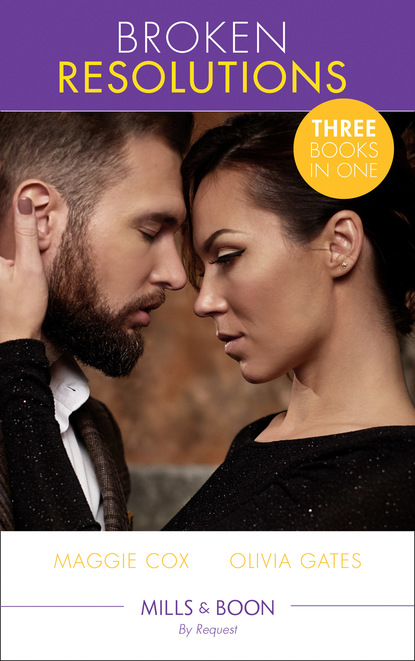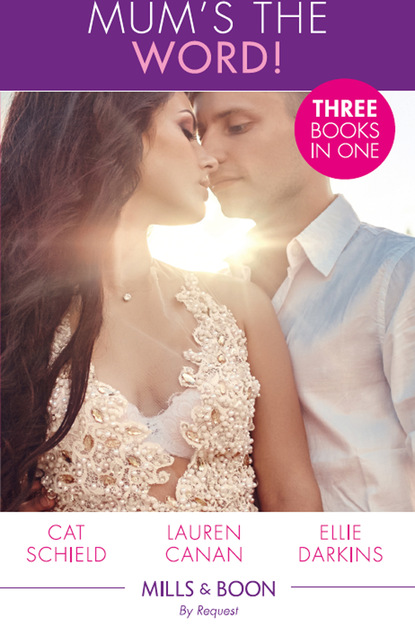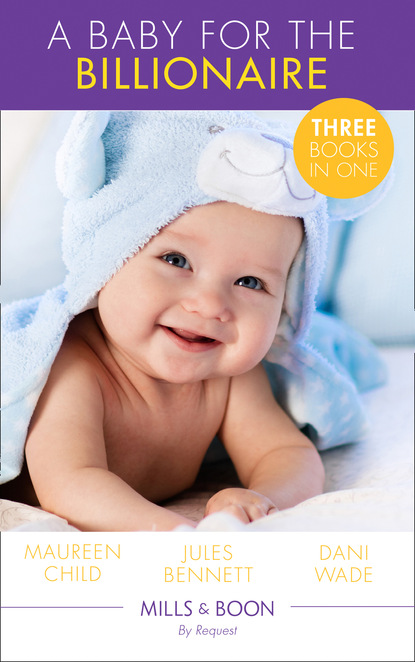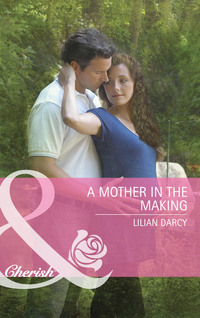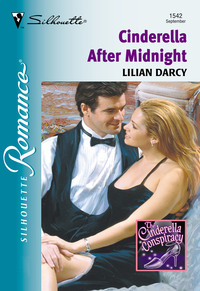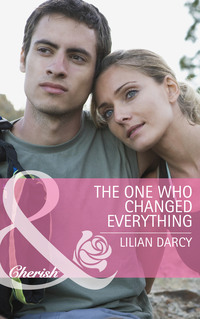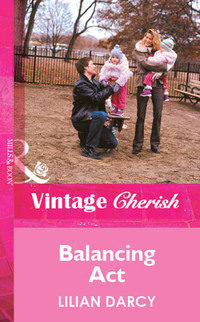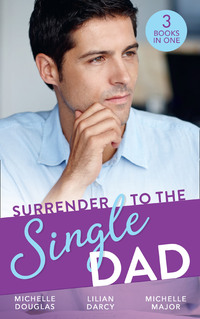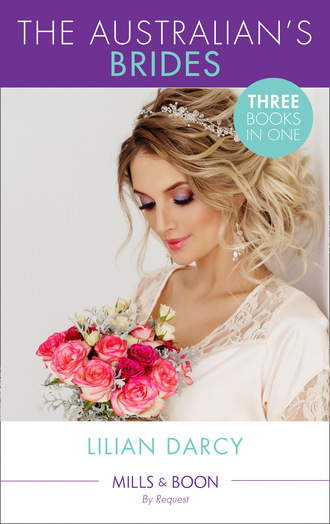
Полная версия
The Australians' Brides
But then the pressure of her needs and her expectations had hit. He’d felt her heat against him, telling him she wanted more, insisting it with warm, full pressure, and he’d panicked and … oh, hell … deflated and pulled away—hopefully before she could have noticed.
He hadn’t compared her to Liz. He hadn’t—was this wrong?—even thought about Liz while he was kissing Jacinda. Not for a second. And when he’d panicked, it had been about the other women, the two very different blondes, and the excruciating awkwardness that had played out both times when his performance had fizzled.
He could still remember it in painful detail. The girl at the races, with her disinterested Whatever … when he’d stumbled through an apology and hinted at an explanation. After my wife … If the girl had noticed his raspy throat and horrible struggle for words, she hadn’t reacted. She’d already been putting on her clothes, miffed at her disappointing night.
The other woman, the backpacker, had soothed him like a baby at first. He’d felt foolish, so uncomfortable at her sickly reassurance. It was the way you talked to a three-year-old who couldn’t get his pants on the right way around.
Never mind, sweetheart, we’ll keep working on it and you’ll do better next time.
She’d turned the whole thing into a personal challenge. Dr. Birgit, Scandinavian Erotic Therapist, to the rescue. He’d felt as if they were writing a new chapter in a sex manual, full of strenuous gymnastic positions and clinical efforts at stimulation.
None of which had worked.
Oh, jeez!
Stop thinking about it!
Here. How about this book? He flipped through Joshie’s “Journal Writing” notebook from three years ago and saw several pages of painstaking numbers showing the date, and labored sentences summarizing his day. “We wnt to the crek. I rod Sam. His sadel sliped. I staid on. Dad fixded it up tite agen.”
The book had about twenty spare pages left at the end of it. If Jacinda could fill those, she might not feel so tense and uncomfortable about asking him for more.
He hoped she did fill them, because he could tell it was important to her.
He put the file box away, closed his office door and took the notebook along the corridor to where she waited for him in the kitchen. Her hands still didn’t seem to know what to do with themselves. She hugged herself, finger-combed her hair, picked up a cleaning sponge and wiped down the countertop even though it was clean already.
“Oh, you found something?” she said, when she saw the book in his grip. She smiled eagerly, but dropped the smile too soon, as if she didn’t want him to guess that this remotely mattered to her.
Too late for that.
Handing it over, he hid the depth of his understanding and told her, “Just let me know when you need another one.”
“Thanks,” was all she said.
After asking Callan so impatiently for paper to write on, Jacinda left Josh’s old notebook blank that night. She looked at it for a while, standing alone in the kitchen after Callan had gone, fingers and brain tingling to begin, but then fatigue overtook her.
And doubt.
What would she write in it, anyhow?
What was the point?
The simple act of having to ask Callan for it seemed to have doubled the pressure. Even though she’d tried to play it down, he wasn’t stupid. He was a practical man. He’d expect results. He had no idea about writing. He’d want to see six new chapters of her long-gone novel by tomorrow night.
Why had she brought the subject up? She could probably write down all the words left inside her on the inside of her wrist or the palm of her hand. She should have asked for a Post-it note.
Carly did sleepwalk at midnight that night, after her earlier fear about Mommy’s safety out in the dark. Or was it because she’d picked up on Jac’s own tension over—well, various things? Carly’s emotional radar was scary, sometimes, and Jac wondered how much Kurt’s behavior during the separation and divorce had affected her daughter deep inside where it might never clearly show.
During her nighttime escapade, Carly had a drink of water in the kitchen, went to the bathroom and checked on the dogs sleeping on the veranda, all of it in her sleep. Then, fortunately, she seemed happy to be led back to bed. Jacinda slid gratefully between her own sheets and didn’t lie awake for another hour as she’d feared she might.
And when she awoke the next morning to the sound of Darth Vader crowing in the chook run, heralding first light, the second thing that came into her head after looking across at her beautiful and safely sleeping daughter was the notebook Callan had given her, and its blank pages.
She wanted to fill them.
She did.
It was a hunger that postcards could never satisfy.
Even though every scrap of the doubt was still there, the need was stronger, and wouldn’t go away. She craved the physical act of holding a pen in her hand and moving it across the paper. She needed to think about words, much better words than just, “How’re you doing?” and “Thank you for your letter.” Dressing quickly, she grabbed the book, found the pen she’d taken last night from a jar on the kitchen benchtop and went out to the veranda.
No one else was up. No sounds of movement came from Callan’s room farther along. No light was visible in Kerry’s little cottage across the dusty front yard. It was the coldest hour of the day. Jacinda sat on the cane couch, spread the mohair blanket over her legs and pulled it up over her shoulders. She thought about coffee but decided to wait, not wanting to risk disturbing Callan if he was having a rare lie-in.
She opened the notebook and found the first empty page. The lines on one side were widely spaced, suitable for a child’s first efforts at literacy, and on the opposite side, the paper was completely blank, ready to be filled by a stick figure and a clumsy tree.
Five minutes went by, but nothing happened. She was tempted to doodle. Her fingers tended to make all these elaborate curly patterns and shapes without her even thinking about it on the rare occasions when she wrote by hand. But she resisted the doodling. She wanted to wait for words.
And finally they came.
“I’m sitting here,” she wrote, “watching light seep upward into the sky like the curtain rising on a Broadway show.”
It didn’t rank with classical literature’s great opening sentences, but she told herself not to care. It doesn’t matter, Jacinda. Just keep going. There doesn’t have to be a story, or a direction, or a logical sequence. Not yet. Not ever. You’re not selling this. You’re not showing it to a soul. No, not to Callan, if he asks. So just keep writing.
Her hand had begun to ache and she’d penned four pages when Callan found her. The light was on over at Kerry’s, and she could hear the boys in the kitchen. She must have been sitting here almost an hour.
“Want coffee?” Callan offered.
He stood beside the wicker couch, looking too tall, and she had to fight the need to cover her page because he had a bird’s-eye view and could have read it if he’d wanted to. As it happened, he wasn’t looking at the page, he was looking at her face.
“I’ll come inside in a minute,” she told him, twisting toward him and leaning her elbow over the paper as if it were just a casual, accidental movement.
“No, I can bring it out for you,” he said. “You’re busy.”
“No, I’m—That rooster of yours doesn’t like visitors to sleep in, does he?” she joked lamely. “I’m only filling in time till Carly wakes up.”
“Well, she has.”
So you’re not buying my excuses, Callan?
Could you pretend, at least?
“Oh, does she want me?” She shifted, started to close the book.
“She’s with the boys. She’s fine.” He leaned down and flipped the pages open again, and their fingers touched. He pulled his hand away. “Keep going, and I’ll bring the coffee.”
“No, no, I’m finished. I’m done. It’s okay.”
“You looked like you were still working on it.”
“It’s not work. It’s nothing.”
“Still, keep going and I’ll bring your coffee out,” he repeated stubbornly, for the third time.
“Okay. Thanks.” She didn’t want to argue anymore, because if she argued, he’d have questions about what she’d written, and she didn’t want questions.
He didn’t seem in a hurry to get the coffee he’d offered, however. He just stood there, leaning against the open doorway, making her skin itch and ripple with awareness. His body was magnetic. She wanted to grab his hip or push her face into his chest and smell his shirt.
Finally, mercifully—after probably a whole six seconds had elapsed—he asked, “Did I give you enough? I mean, are there enough pages left in the notebook? Because there are a couple more I can give you. And I have printer paper, too. Or if you want to use the computer again …”
“For the moment, I’m fine with this.” She laid her hand across the half-filled page.
It was, seriously, years since she’d written this much by hand, and yet she hadn’t even considered Callan’s computer, she realized. Somehow, this was the method that felt right for now, this filling of white paper with blue scrawl. She liked the physical act of scribbling out a wrong word, or jetting an arrow across the page toward a sentence added in after further thought.
Callan still hadn’t left.
“I’m guessing you don’t plan to show me right this minute.” He smiled, but she wasn’t in the mood to get teased on this.
“No.”
“No?”
She covered the page protectively with her arm once more. “It’s nothing. It’s terrible. It’s just—It’s not a story, or anything. It’s just little snatches. Impressions.”
“Like a poem.”
“Not even that. Sort of like a poem.” Unnh! “I might turn some of it into a poem later.”
“And then you can show me.” He gave her a sly look, and there was the promise of a grin hovering on his face.
“No! Please don’t … Please don’t treat this like a joke, Callan, or like tasting a batch of cookies I’ve made. It’s not like that. I couldn’t—I’m sorry, I don’t have a sense of humor about it, and I can’t explain that, I can’t explain why it’s important, I just—”
“Hey … hey.”
Oh crud, now he’d sat down, frowning and concerned. Now she’d really turned this into something. She should have fobbed him off, just agreed that, yes, it was a poem and that, sure, yes, she’d show it to him when it was done, and hope that the whole thing would drop from his mind because surely he had better things to think about.
“I’m not treating it like a joke, Jac,” he said.
His blue eyes were fixed on her, as motionless as the surface of the water hole at night, as deep and bright as the midday outback sky. The old, sagging couch pushed them closer together, the way it had on her first night here, as shameless as a professional matchmaker. Go on, it said, feel his thigh pressed against yours. Don’t fight it. You like it.
“I’m not laughing at you about this.” His voice had a husky note in it. “I wouldn’t. I know it’s important.”
“It’s not important.” She pushed her hand against his upper arm and tried to shimmy her butt sideways so the matchmaking couch didn’t get its wicked way. Callan leaned back, respecting her need for space, still watching her. “It’s stupid,” she said. “Writing really doesn’t matter. If I never wrote another word in my life, the universe would not be a poorer place.”
“You don’t believe that.”
She laughed. “No, I don’t, but I should! Because it doesn’t make sense that it’s so important. I’m not expecting you to understand any of this.”
“Give me some credit.”
“No, I didn’t mean that you’re not smart or—You’re not a writer, that’s all.”
“Do I have to be? Isn’t there only one thing I need to understand? Without it, you’re incomplete,” he said simply.
She nodded silently, stunned at the words.
Yes.
She’d never heard it put so plainly.
Without it she was incomplete.
“You just said it,” she stammered. “Y-you’re so right. How—?”
“Everyone has things like that. Their kids, their work, their land. Their gardening, their guitar playing, their sport.” His tone had changed, sounded more distant and defensive, like a lecture. But then he couldn’t sustain it, and seemed to give up the attempt. His voice dropped again, the pitch low and personal. “You don’t need to ask yourself or anyone else why writing is important, Jacinda. You just need to know—I have to have this in my life to feel complete. That’s okay. That’s no big deal. The bad, impossible part is that if something takes it away, it kills you, doesn’t it? It cripples you, torments you, until you find a way to get it back.”
“How did you know that?” It was almost a whisper. Barely aware of her action, she grabbed his hand, let the couch lean her in closer to him. “Just hearing you say it is … great, such a relief … thank you. For taking it seriously. For saying it. But how did you know about the torment?”
His body sagged. His eye contact dropped as if the thread of communication between them had been sliced through. He looked as if he was talking to the floorboards or to his shoes, not to her.
“Hell, Jacinda! D’you honestly think you’re the only one it’s ever happened to?” he muttered.
Chapter Nine
Callan wouldn’t follow through.
Jacinda didn’t push or demand, but she wanted to understand what he meant. How had it happened to him? Where was he incomplete? He couldn’t be talking about the loss of Liz, because there was grief in that, yes, but no shame and she was certain that she’d seen shame in him when he’d said those words.
D’you honestly think you’re the only one it’s ever happened to?
Shame? Why?
They had common ground, it wasn’t a source of shame, and she thought they should grab at it and make use of it, but he clammed up and wouldn’t talk about it, said it wasn’t important, he couldn’t explain, she should just forget it. Carly’s arrival on the veranda a moment or two later gave him an easy way out that he snatched up as shamelessly as a serial dater might claim, “I lost your phone number.”
“Woo-hoo, Carlz!” he said. “Ready for another big day?”
Knowing how much she didn’t want to feel pressured about her writing and therefore not wanting to pressure Callan in return, Jac let it go for the time being. Instead, she hugged Carly, closed Lockie’s old notebook and took it into the house. Four pages was enough for now. Four pages was good. Even a sentence would have been good, so four pages was actually great.
Three days later, she’d written fifteen.
They still weren’t a part of anything. Too disjointed and personal for a story. Too poetic for a diary. Not jazzy and chatty enough for a blog on the Net.
She wrote about the colors of her favorite hen’s feathers in the sun, about the feel of bread dough in her hands, and the words that Kerry had used when she’d taught the recipe and the technique. She wrote two pages of stuff she imagined herself yelling at Kurt, not in his huge executive office or out front of Carly’s preschool, but the things she would have yelled if she’d been standing on the rock ledge at the water hole about to jump in, while Kurt was down on the sand—and okay, admittedly, since this was a fantasy, cowering there.
She wrote out the words six hundred thousand acres and they looked really good on the page, much better than just the numbers. They looked so good that she found out some other numbers from Callan—the distance around the perimeter of Lake Frome, the length of all the fences on his land, the height above sea level of Mount Hindley and Mount Fitton and Mount Neil—and wrote those down in words, also.
She wrote about all the new things Carly did, and the new discoveries she made.
Including a snake.
Yep, bit of a shock, that. She and Carly had gone out to collect eggs before lunch on Tuesday and hadn’t even seen the huge, silent thing coiled against the shade cloth at the side of the chook house until they were close enough to touch.
Oh … dear … Lord.
Her heart had felt like it had stopped, but Carly’s scream was more one of surprise than fear. Kerry had come running from her vegetable garden and had quickly been able to tell them it was only a carpet python.
Right.
Only.
Harmless, Kerry had said. Really. Wouldn’t even squeeze you to death, which had been Jac’s second theory, once she’d abandoned the toxic venom idea.
“Take a look at it, Carly,” Kerry had invited, and Carly had looked.
From a little farther away, so had Jac.
They’d seen the markings and Kerry had told Carly her version of an Australian aboriginal myth about a lizard and a snake who had taken turns to paint markings on each other’s backs, which had kept both Carly and Jacinda looking at the python long enough to really see its beauty.
Because it was beautiful. The markings were like the neat stitches in a knitting pattern, with subtle variations of creams and yellows on a background of brownish gray—gorgeous and neat and intricate. Jacinda was discovering so much that was beautiful on Callan’s land, and Callan watched her doing it, knew she was writing about it, and seemed to be happy with that, even though he didn’t say very much.
On Thursday, they drove for three hours with Carly to Leigh Creek in the truck, and picked up fence posts and postcards, among other supplies. The town was modern and neat and pretty, with young, white-trunked eucalyptus trees and drought-tolerant shrubs flowering pink, yellow and red. For lunch they stopped in a tiny and much older railway town called Copley just a few miles to the north of Leigh Creek and ate at Tulloch’s Bush Bakery and Quandong Café—well-known in the area, apparently, as well as a popular tourist stop.
“You have to taste a quandong pie for dessert,” Callan decreed, so the three of them ate the wild peach treats, which tasted deliciously tangy and tart, something like rhubarb, inside a shortcrust pastry with crumbly German-style streusel on top.
Jac sat in the café for a little longer and wrote her postcards, while Callan entertained Carly by taking her for a wander around the quiet little town. The postcards were tough, and there were lots of places where her pen hovered over an uncompleted line while she searched for words. But she managed to fill the space in the end, and included Callan’s e-mail address. “I’d love to hear from you, if you get a chance,” she told both her brothers, hoping they would realize that she meant it, hoping they’d care enough to respond.
On the long journey home, Carly fell asleep in the seat between them, and with her sweet-scented little head on Jac’s shoulder, Jac got sleepy as well. They’d left pretty early this morning, and Callan had even let her drive for part of the journey. In a truck of this size, on outback roads, it had been a challenge but she couldn’t have chickened out. It seemed important, right now, to push herself in new ways, to prove her own strength—to herself, more than to anyone else.
Proving yourself did definitely leave you sleepy, though.
The smooth gravel of the road hummed and hissed beneath the wheels, and even the sight of a group of kangaroos bounding away across the red ground didn’t do more than make her eyes widen again for a few moments.
Callan teased her when she woke up again. “You had a good nap, there, judging by the size of the wet patch on your shirt.”
“Oh! Was I—?”
Drooling? True, Carly sometimes did, in her sleep.
Without speaking, he handed Jac a tissue, but there was no wet patch that she could find. She wadded the tissue up and pelted him with it. “I was not!”
“Snoring, muttering, reciting Shakespeare and your bank account number. Kept me awake, so thanks.”
“I was not! Pass me another tissue!” Even though it wasn’t a very effective weapon.
“Okay, I won’t mention any of the other things you do in your sleep.”
“I snoozed lightly. For about ten minutes.”
“Forty-five, actually.”
“You mean we’re nearly back?” Taking a better look at the surrounding country, she recognized Mount Hindley approaching to the right. She knew its distinctive silhouette, now. “Oh, we are! I really did sleep!”
“Yeah, my conversation was that interesting.”
“You didn’t say a word!”
They grinned at each other over Carly’s head and it just felt good.
On Friday evening, he asked her, “Do you still want to see the animals drinking, down at the water?”
“I’d love to.”
“Because we could do it tomorrow, if you want.”
Apart from Thursday’s trip into town, he’d been working hard since Sunday to get the new mustering yard completed, going out to Springer’s Well with Pete first thing every morning and not returning until late in the afternoon, leaving Lockie behind after that first day because of School of the Air. The mustering yard was almost completed now, Jacinda knew, ready for the next roundup of cattle for trucking to the sales down south.
Pete had had enough of the twice-daily drive between Arakeela Downs and Nepabunna by Monday afternoon, on top of the even rougher trip out to Springer’s Well, so he’d stayed at the homestead overnight on Monday and Tuesday nights to give them longer working days.
He had slept on the front veranda, wrapped in a sleeping bag laid on top of the ancient canvas of an army camp stretcher. He’d been an easy guest. Didn’t talk too much. Didn’t make a mess. Ate whatever was put in front of him.
And he’d told Carly stories about the mythical Akurra serpent, whose activities explained the existence of the water holes and gorges all over this region, as well as the existence of Lake Frome. “Big rocks in the creek, Akurra’s eggs. Belly rumbles ’cos he drank too much saltwater, and you can feel it under your feet. You feel one day, Carly, if the earth ever shakes a bit, that’s Akurra.”
Mythical serpents, real carpet pythons, yabby sandwiches … Carly took it all in stride. But her little legs probably weren’t yet equal to a dawn climb up Mount Hindley, so Callan suggested that this time they leave all the kids and Kerry behind. He packed breakfast and hiking supplies that evening, and suggested that Jac bring a day pack, too.
“For water and sunscreen, your towel, your camera, and somewhere to put your sweatshirt once the sun gets higher.”
Packing these items, Jac thought about the second schoolwork notebook that Callan had given her today—“In case you’re in danger of filling up the first one,” he’d said, and she dropped that in, also, along with a pen. She thought she was probably just giving herself unnecessary extra weight.
If he hadn’t made that rash promise about a dawn hike to Jacinda down at the water hole last Saturday night, he wouldn’t be doing this, Callan knew. He set the alarm for five-thirty because they wanted to get to the top of Mount Hindley to see the sun’s first rays, but he didn’t need its jangling sound to rouse him. He’d already been lying awake since four forty-five, locked in a whole slew of illogical feelings.
The thought of several glorious early morning hours alone with Jac made him heat up way too much.
He just liked her.
A lot.
Her company. Her outlook. Her smile.
And he was a man, so liking channeled itself into predictable pathways.
Physical ones.
He knew that his mood changed when he walked into the house and she was there. His spirits lifted, floating his energy levels up along with them the way empty fuel cans used to float the scrappy wooden rafts he and Nicky had hammered together to ferry around the water hole as kids.
Who noticed?
Someone had to.
Mum wasn’t blind, and her hearing was pretty sharp, too. Could she hear the way his voice changed? He got more talkative, louder. He laughed more. He threw Carly up in the air, wrestled with Josh, told bad jokes to Lockie, got all three kids overexcited before bedtime just because he was too keyed up himself and couldn’t keep it dammed back.




